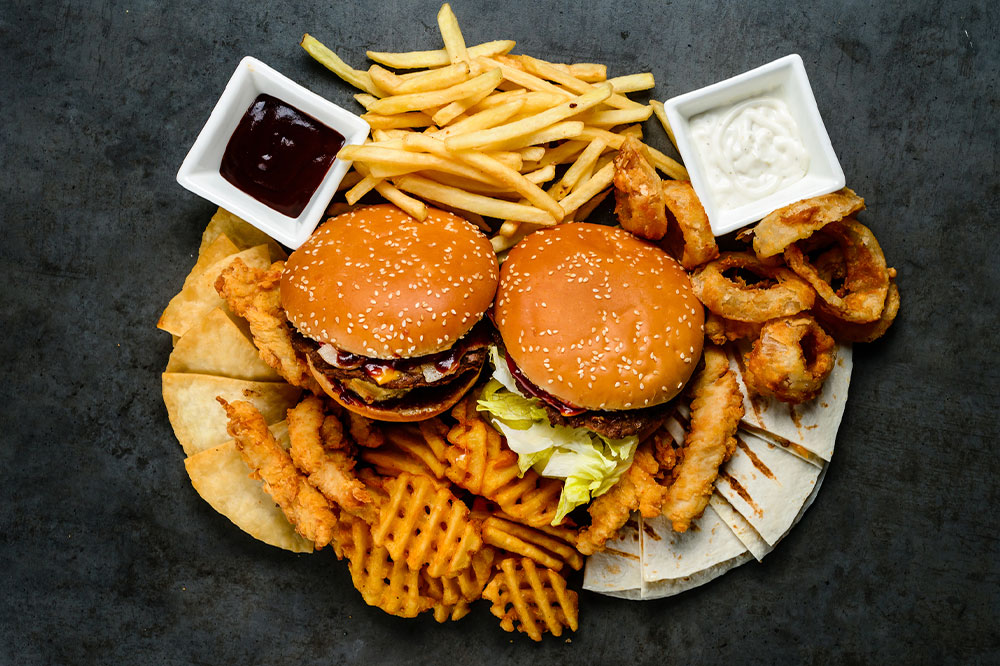
Things to know to effectively manage rheumatoid arthritis
Arthritis is one of the most common health conditions that affects about one out of four adults in the country. It can be both inflammatory and non-inflammatory. Managing rheumatoid arthritis entails slowing the disease’s progress and eliminating the symptoms. Even though not validated through clinical tests, many patients ease their stiffness and pain by eliminating specific foods from their nutritional regime. Here is a list of 7 things one must avoid for managing rheumatoid arthritis:
Omega-6 fatty acids and fried foods
Notwithstanding the kind of oil used, fried foods are always harmful to a rheumatoid arthritis patient. This is because the presence of trans fats (known to cause inflammation within the body) in fried foods tends to be higher than in broiled or grilled foods. Some typical foods containing trans fats include shortening, margarine, lard, butter, non-dairy creamer, and coconut oil.
Besides, specific oils used for frying are especially notable for increasing inflammation due to the presence of Omega-6 fatty acids. Furthermore, the cooking method called frying proves harmful to the patient due to its tendency to release AGEs, a principal contributor to inflammation.
Refined sugar and carbohydrates
Having a sweet tooth can be agonizing for a Rheumatoid Arthritis patient as their condition will compel them to give up on several sweet-tasting delicacies. Studies show that refined carbohydrates contribute to worsening rheumatoid arthritis symptoms, primarily of two types: refined grains and sugars.
Some of the chief sources of refined sugar include processed, baked goods like store-bought cookies, pastries, and donuts. One can avoid having refined sugar by poring over the ingredients list of the concerned food. Glucose, fructose, and dextrose should be avoided at all costs.
Besides refined sugars, one needs to monitor the intake of refined grains due to their close link to inflammatory properties. Examples include white rice, white flour, and white bread.
Advanced Glycation End Products (AGEs)
AGEs are molecules generated by reactions between fats or proteins and sugars. They are naturally present in specific uncooked foods, but their prime source is inherent in particular cooking techniques. Foods rich in fats and protein, mainly fried foods, are the chief sources of AGEs. One must avoid foods like mayonnaise, French fries, and American cheese to keep rheumatoid arthritis symptoms in check.
Gluten
Even though it is not directly related to rheumatoid arthritis, one must consider removing gluten from their nutritional regime. Gluten is a protein in several grains, including wheat, rye, and barley. Patients with celiac disease strictly avoid them to ease joint inflammation and pain caused by gluten consumption. If the disorder entails chronic inflammation, it is better to say bye to gluten-containing foods.
However, many foods may contain gluten in disguise. These include soups, pasta, soy sauce, and couscous. Specific treatments, vitamins, and supplements also contain gluten. Make sure to go through the ingredient list before intending to consume them.
Sodium
According to some research studies, having low salt foods can ease the intensity of symptoms far more than having high salt foods. Besides, one must consider monitoring the sodium intake as it is closely linked to inflammatory properties. Foods containing high sodium include some cheeses, canned soups, and various other processed foods.
Aspartame
With the advent of aspartame in the markets, patients with diabetes or those who cannot have excessive sugar could finally take a sigh of relief. However, soon it turned out that even aspartame comes with specific conditions. Many patients suffer from Aspartame sensitivity and feel unwell when ingesting any food or drink containing it. The reason for aspartame’s massive popularity is that a small amount is enough to make the food taste sweet. However, as it is not processed naturally, the human body cannot digest it quickly, causing inflammation.
MSG
Monosodium Glutamate (MSG) is primarily notable for triggering migraine pangs. However, it also possesses inflammatory properties. It is mainly used in processed foods to enhance flavor and can also be found in several Asian foods. Besides that, one can encounter MSG as a component in soy sauce and crunchy, salty snack foods like crackers and chips. To monitor the MSG intake, keep an eye on the food label. Also, avoid specific natural foods like cheese, tomatoes, soy products, and yeast extract.
Managing rheumatoid arthritis
Living with rheumatoid arthritis is by no means an easy task. The constant stiffness and pain in the joints and other body parts can almost cripple a person. However, with proper management of nutritional regime and some alterations in one’s lifestyle, one can overcome the perils of rheumatoid arthritis symptoms. Consult a health professional to discuss the dos and don’ts for an arthritis patient. Also, do not slack off with the prescribed pills. Some of the typical treatments the doctor may prescribe are:
Tremfya : It is an FDA-approved treatment for rheumatoid arthritis symptoms like stiffness, swelling, and joint pain.
Actemra : It is a biologic that cures patients with moderate to severe rheumatoid arthritis.
Plaquenil : Its generic name is hydroxychloroquine, and it is prescribed by doctors to ease rheumatoid arthritis symptoms like joint pain, inflammation, swelling, and stiffness.
Have them as prescribed and avoid the things mentioned in the above list to ease the severity of rheumatoid arthritis symptoms.